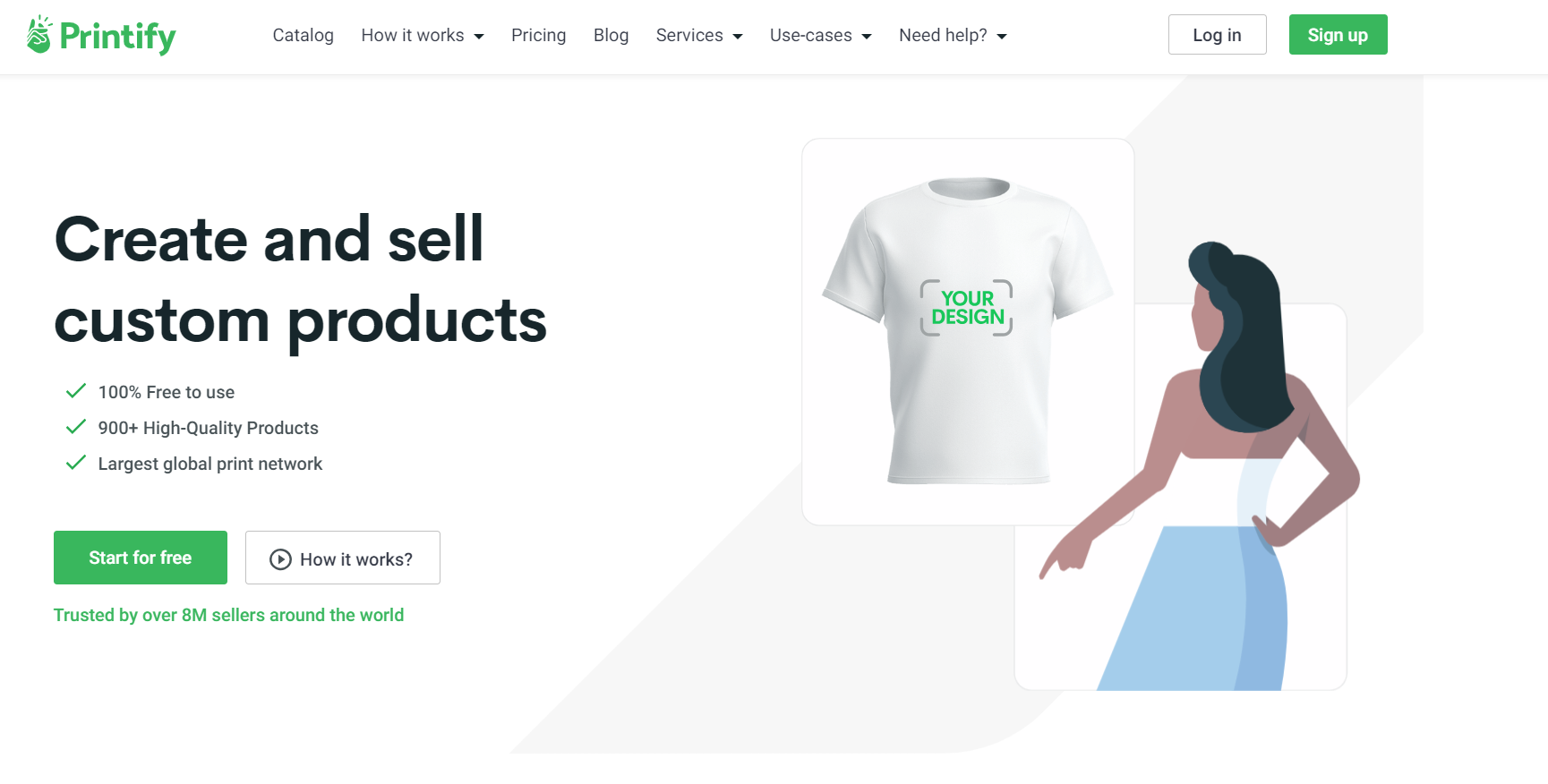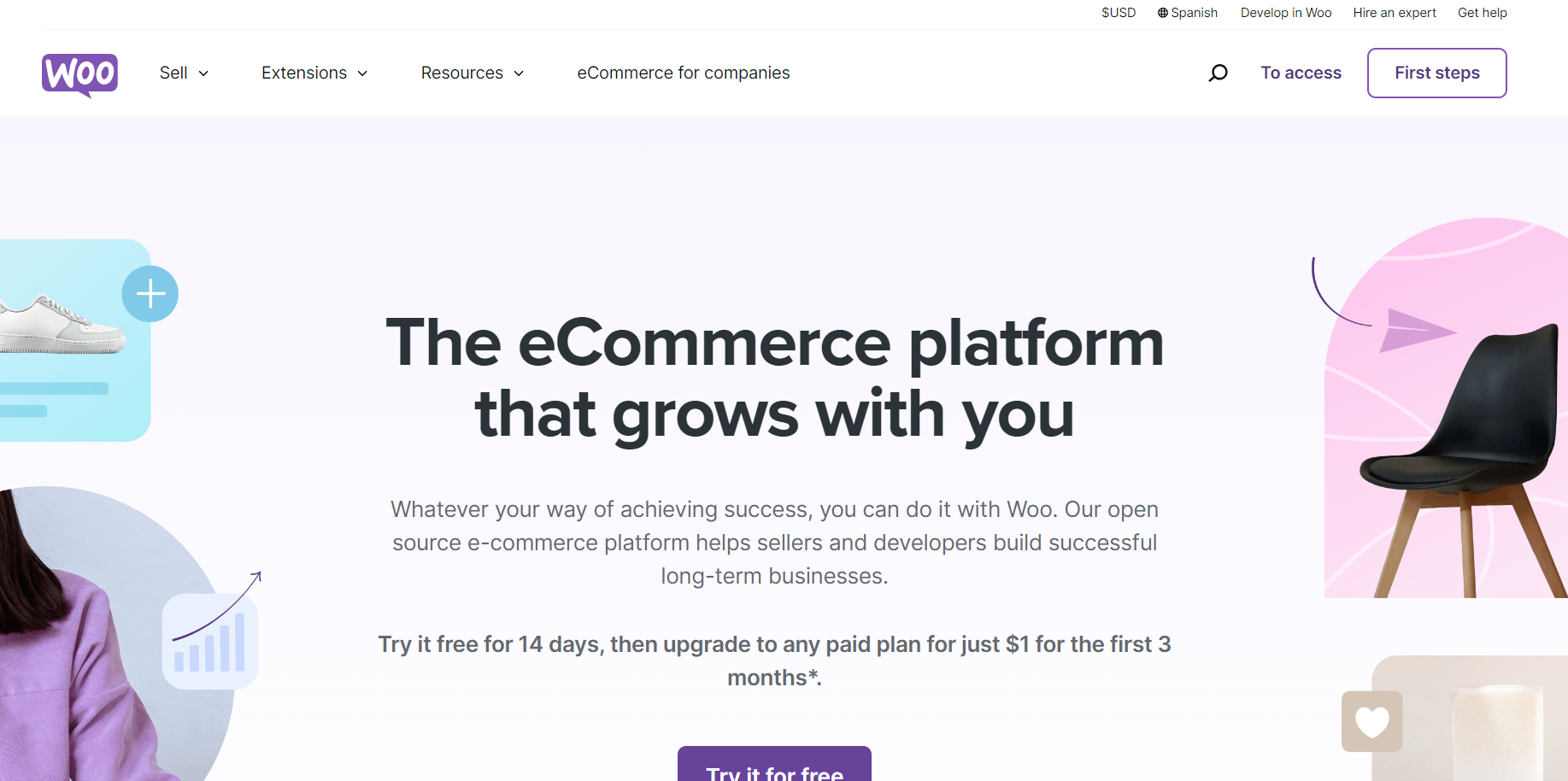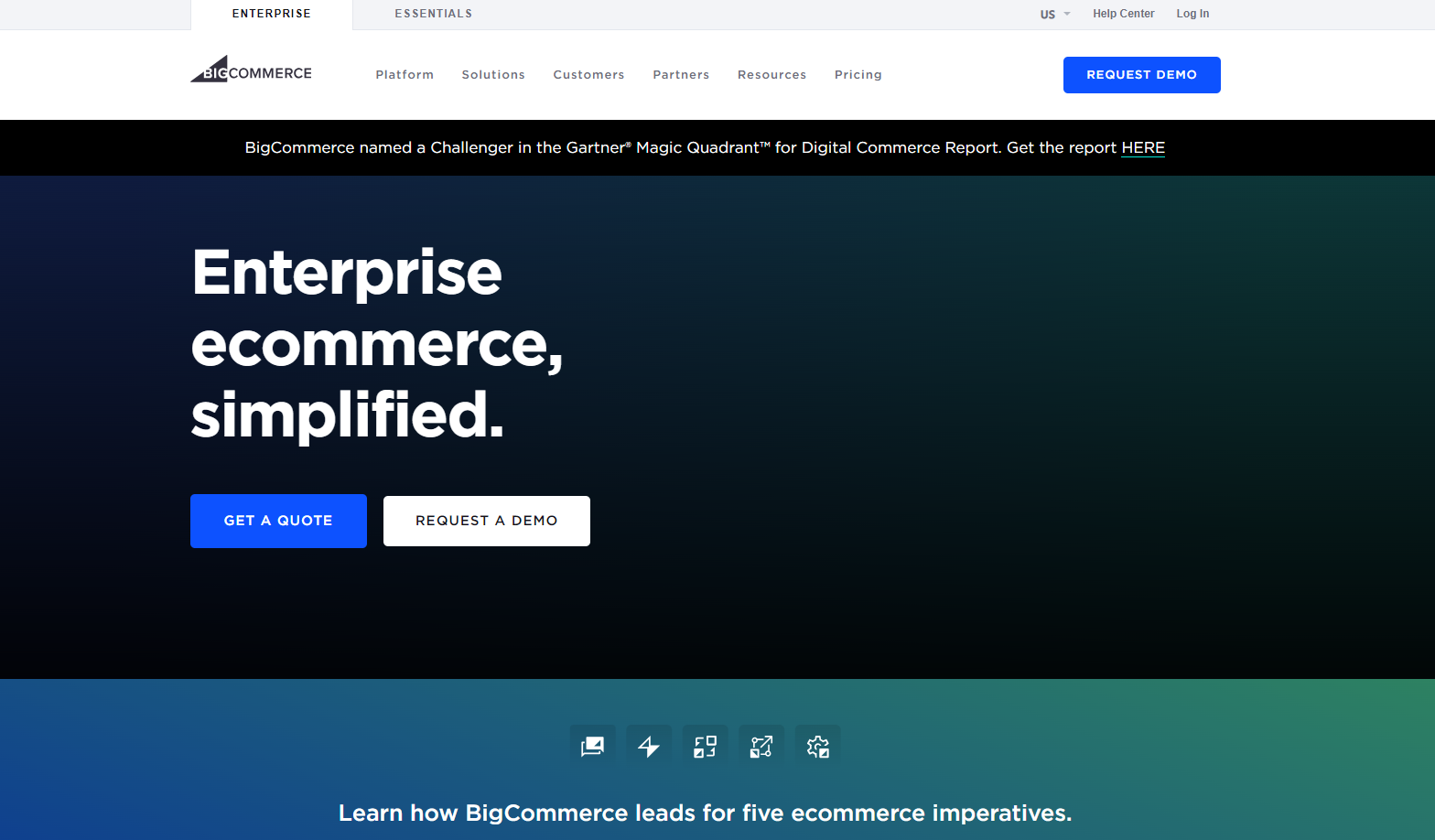How To Find High Profitable Dropshipping Sales Channels
Dropshipping is simply creating an online store, accepting orders, receiving payment from the consumer, and then paying the manufacturer to send the item to the end customer. With no inventory charges, you may sell and transport without worrying about any of these pricey fees. But, what are the best dropshipping sales channels to offer your products at?
With the retail apocalypse and significant expansion of dropshipping, it is essential to be informed of the most successful dropshipping sales channels to benefit from cutthroat competitive online marketplaces.
Shopify dropshipping is something everyone is well aware of. That also means that competition is increasing day by day, and you need to know about alternative platforms to stand out from the crowd.
Well, In this article, I am going to share some of the most profitable dropshipping sales channels with a brief analysis of their pros and cons. Sit back, relax, and enjoy reading.


Table of Contents
- Types Of Online Sales Platforms For Dropshipping
- Things To Consider While Finding Your Dream Marketplace
- List Of Shopify Alternatives
- The No. 1 Tool for all dropshippers – now with AI
- Are These Shopify Alternatives Available For Free?
- Niche-based Dropshipping Platforms By Shopify
- Benefits Of Dropshipping
- Wrapping It Up!
Types Of Online Sales Platforms For Dropshipping
Social media platforms, privately held websites, and general markets are examples of sales channels specified for dropshipping.
Using a general eCommerce platform, such as Shopify, Amazon, and Printify, implies that all of the efforts of creating a website have already been done. Whereas having your own eCommerce site gives you a greater opportunity to express yourself.
Every marketplace has its own specifications and advantages based on the fundamentals of your business and target audience. Therefore, it is important to know which platform to select for the optimal growth of your business.
💡 Tip: Learn What Is SKU? SKU Meaning In Sales & Manufacturing.
Things To Consider While Finding Your Dream Marketplace
Here is a precise list of factors you need to consider before choosing dropshipping sales channels.
What Kind Of Product Are You Selling?
If you offer pricey equipment, you must assess if your buyers are making a simple purchase or are looking for an investment. On the other hand, if the majority of your items are impulse purchases, you may count on a broad marketplace with high traffic.
It’s preferable if you have a website where visitors can simply find what they’re seeking and analyze it thoroughly.
Are You Willing To Invest In Your Business?
Regardless of the kind, every sales channel will cost you money. Businesses that use a general market typically pay commission fees, which can take a significant chunk out of their revenues.
You must invest your own money in marketing and promotion when starting your own internet shop. Before choosing, consider the advantages and disadvantages of each sales channel.
Profit Margins Or Exposure – What’s Your Priority?
Some companies sacrifice profit margins in favor of consistent sales and great exposure. Making your own custom dropshipping website would be a terrific approach to market your business if your objective is to increase revenues.
You may bypass existing eCommerce platforms where vendors must share their revenues with the marketplace by creating your own website.
Who’s Your Target Audience?
It might be challenging to identify a sales channel that targets particular groups of people. If you offer a line of streetwear, for example, your clientele would be young people. Using a social networking site like Instagram or Facebook will help you get their attention.
A generic internet marketplace, on the other hand, is better if your products or services aren’t restricted to a particular clientele.
List of most Profitable Online Sales Marketplaces for Dropshipping
Now that you have learned all these factors, let’s take a look at the most profitable online sales marketplaces for dropshipping:
Google Shopping
Google Shopping is the most effective comparative shopping engine on the internet. CSEs simply post information about your products and lead visitors to your site to make the transaction, making it a vital channel to add to your dropshipping firm.
Most importantly, Google owns Google Shopping, so you don’t have to be concerned about low SEO rankings.
eBay

eBay is the world’s largest online marketplace for selling items, and you should make use of it if you want to reach clients all over the world. There are multiple advantages of dropshipping on eBay.
For example, You won’t have to worry about promoting or paying for visitors with Search Engine Optimization. Shipping is discounted for its merchants. Brand Recognition and Trust. So, if you are looking for dropshipping sales channels, this one is a win-win.
Amazon

Amazon and eBay both have similar advantages, but Amazon has its own hype for all the good reasons. For starters, Amazon has a significant online presence and charges vendors very little for its services.
Every referral link to your site on Amazon will cost you far less than the normal markup of 50%. Moreover, Amazon’s referral fees are less than 20%, allowing you to earn from a cheap listing price.
Printify

Printify has also emerged as a flourishing and effective dropshipping platform. This service allows you to start your print-on-demand business and sell products with no up-front investment needed. Printify, unlike typical garment and printing companies, does not print in bulk and only builds things once they have sold.
There’s also a mockup generator that lets you preview how things may look in different colors and sizes.
Printify makes dropshipping simple for newcomers. It is an easy-to-use print-on-demand and dropshipping platform that allows anyone from all fields to start their own business with no initial investment.
Amazon, eBay, Printify, and Google Shopping are all Shopify-related dropshipping platforms, but if you are looking for some effective “Shopify Alternatives”, then your list has just begun:
List Of Shopify Alternatives
1. WooCommerce

WooCommerce is a powerful WordPress plugin that can convert all kinds of WordPress sites into an online store. Since WordPress is an online platform, there are no restrictions on personalization. Many free themes provide everything needed to get started, while others may require membership for extra plug-ins.
WooCommerce payments are completely built-in and integrated, supporting up to 135 different currencies, debit and credit cards, as well as regional payment processors.
A WooCommerce business can add more than 30 payment alternatives from the extensions store, including PayPal and Stripe. WordPress requires site hosting and a domain name even if the WooCommerce plugin is completely free.
2. Wix

Wix is among the most common web builders available. It can swiftly construct any website, including online companies, under a free custom domain. Thus, it is a great option for building dropshipping sales channels.
The user may choose between the drag-and-drop Wix Editor and the artificial-intelligence-powered Wix ADI. Wix is a Shopify alternative ideal for frequent sellers searching for an efficient and rapid solution.
There is almost nothing that cannot be customized by the Wix editor. The Velo Editor allows for extensive customization as well as the incorporation of code and snippets. While Wix allows you to create and sell an infinite number of items, increasing their quantity has an impact on the site’s speed.
Besides, the Wix app store has thousands of third-party applications, which supplement the already extensive set of built-in capabilities.
3. BigCommerce

BigCommerce is a hosted online marketplace designed for large, high-volume eCommerce shops. The platform has a plethora of built-in powerful creative tools, which are available with the most basic options.
It may appeal to small and medium-sized company users looking for a similar Shopify experience with fewer external app dependencies.
There are 12 free themes and over 130 premium themes available, as well as an editor for simple modification. BigCommerce and Shopify are SaaS platforms. Unlike Shopify and most other eCommerce systems, BigCommerce focuses on providing primarily good built-in resources.
Selling infinite items with up to 250 possibilities, POS, connectivity with sales platforms like Amazon and eBay, and social network connection are some of the most prominent features of this wonderful platform.
4. PrestaShop

PrestaShop is an open-source, feature-rich, and freemium eCommerce platform that is self-hosted. It allows the user complete control of the eCommerce shop beginning with its installation.
Depending on their technical talents and eCommerce experience, PrestaShop may appeal as a wonderful Shopify alternative for entrepreneurs. The platform may be installed automatically or manually by a hosting provider using a one-click script.
PrestaShop stores may be created from scratch or using templates. For large stores, the appearance of the basic templates may appear unpleasant or amateurish.
PrestaShop accepts payments via PayPal, Stripe, Google Checkout, Amazon Pay, and over 250 more payment methods. The program is accessible in 65 languages and can translate over 40 others.
5. Squarespace

Squarespace is a hosting-based website builder. It has fewer tools than other Shopify options, but each one is excellent and reliable. Squarespace’s template-based editor is simple to use and produces consistent output across PCs, tablets, and smartphones.
It is hard to change the template after the site has been built. However, there are infinite 14-day free trials to experiment with alternative possibilities.
Squarespace’s applications and plug-ins are the most similar to those of other Shopify competitors. Dropshipping and POS are supported by the website builder via restricted built-in features.
The original focus of Squarespace on content sites transfers into well-developed solutions for optimizing marketing efforts. Pages can be hidden from search engines and have thumbnails added for them. Thus, it is a great way to boost your own dropshipping sales channels.
Are These Shopify Alternatives Available For Free?
Wix’s free plan allows you to create a shop website, but the eCommerce capabilities are only available if you purchase an eCommerce subscription.
While the PrestaShop and WooCommerce eCommerce systems are free, they also require credible web hosting. In addition, premium plug-ins templates can also be required!
Niche-based Dropshipping Platforms By Shopify
- Bonanza
With over 25,000 registered firms, Bonanza is regarded as the top option for dropshippers in the fashion sector. You simply have to pay a 3.5 percent closing cost on deals under $500, and there are no listing fees to pay.
- Nextag
Nextag is a popular comparison shopping site, with over 30 million visits every month. It is an excellent platform for dropshipping because it is a top performer in terms of traffic and conversions.
- Bing
Spending on the Bing Network is 6% more than that of the ordinary internet user. With this platform, you may dropship to a huge client audience, including 68 million desktop searchers who Google itself does not reach!
Benefits Of Dropshipping
Dropshipping is the fulfillment mechanism used by roughly 33% of online companies. Every year, eCommerce rises by roughly 17%. Dropshipping is also used by Amazon: 34 percent of Amazon purchases in 2011 were fulfilled by a dropshipper, and that percentage has only climbed since then.
Please take a look at some of the key benefits of starting a dropshipping business.
- Dropshipping can be very advantageous for merchants with erratic sales. Since there is no location-based dependence on order fulfillment, dropshipping retailers may grow swiftly.
- Dropshippers have a greater selection of things to choose from, which allows them to sell a bigger variety of products.
- Businesses that use a dropshipping model save money since they don’t have to set up a warehouse or buy inventory.
- Also, they don’t have to spend time managing their inventory or recruiting personnel to process orders.
- Many parts of a retail operation have become quite flexible thanks to dropshipping. A brand may operate from any location and easily modify its product lineup to add more variety in response to shifting customers’ tastes.
A Useful Tip For All Entrepreneurs Out There!
Before making any long-term decisions, a wise entrepreneur would conduct research on possible suppliers and distributors. The most difficult stage for 84 percent of eCommerce sellers are getting their business started. So, play smart and pick your cards wisely!


Wrapping It Up!
Every eCommerce platform has its own set of advantages and disadvantages, yet they all provide comparable fundamental eCommerce functionalities. The ideal Shopify alternative will be determined primarily by the demands of each organization.
BigCommerce may be the ideal option for individuals searching for all of the capabilities given by Shopify with a comparable approach.
I hope this brief analysis will help you choose the best dropshipping platform according to your dusting requirements.
This is a big world, and no one is stopping you from becoming the person you want to be. So, pick up your passion (that can be anything, a service, a product) and use it in the best possible way for your success. Be smart, make smart choices, and live a smart life.
The earlier mentioned marketplaces are craving entrepreneurs like you. Choose your platform and be the best one there!













![The Top 21 3PL Companies Compared [2024 List & Guide]](https://images.weserv.nl/?url=https://prod-dropshipping-s3.s3.fr-par.scw.cloud/2024/03/Frame-3922469.jpg&w=420&q=90&output=webp)